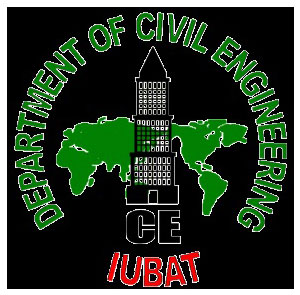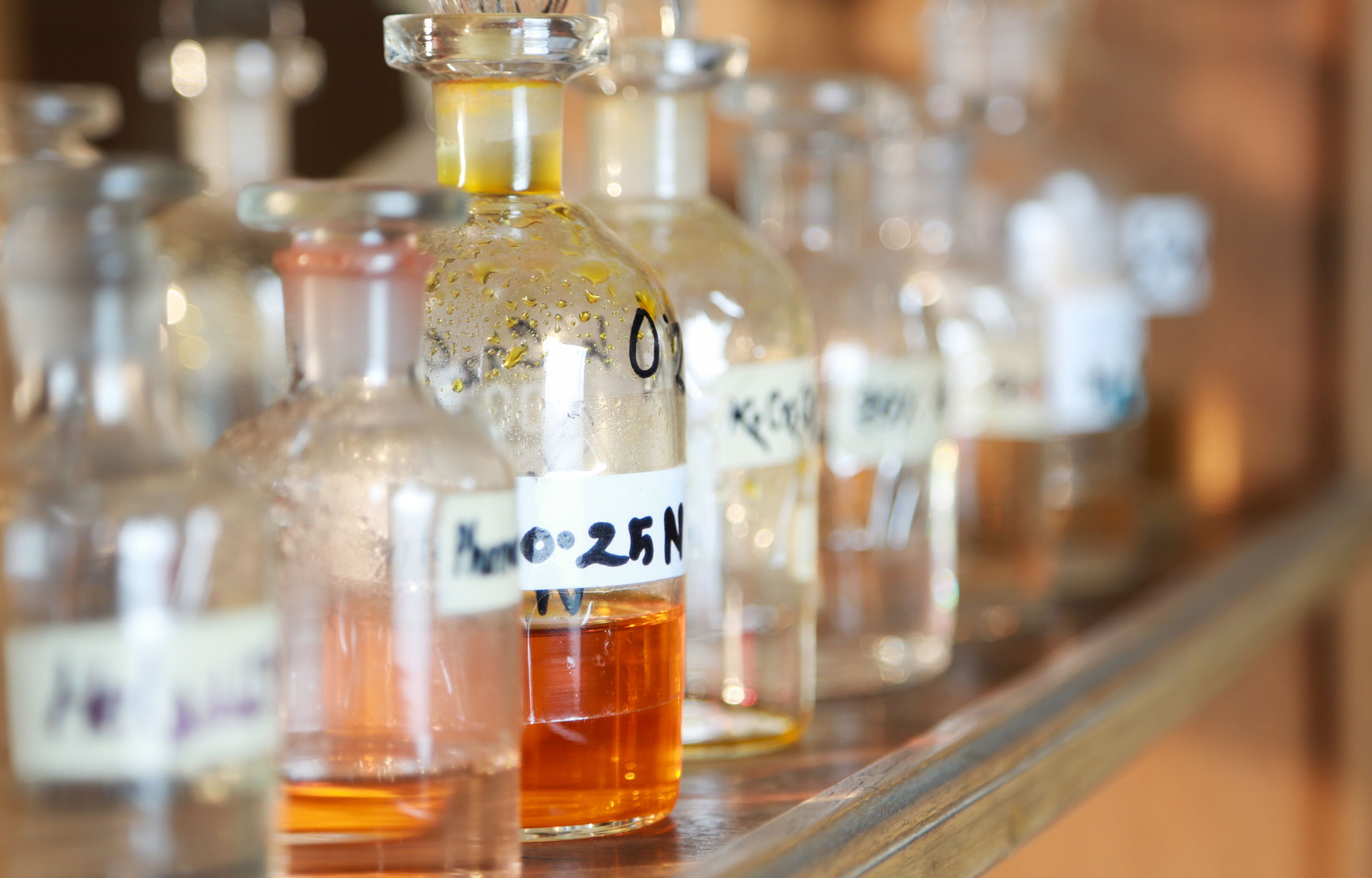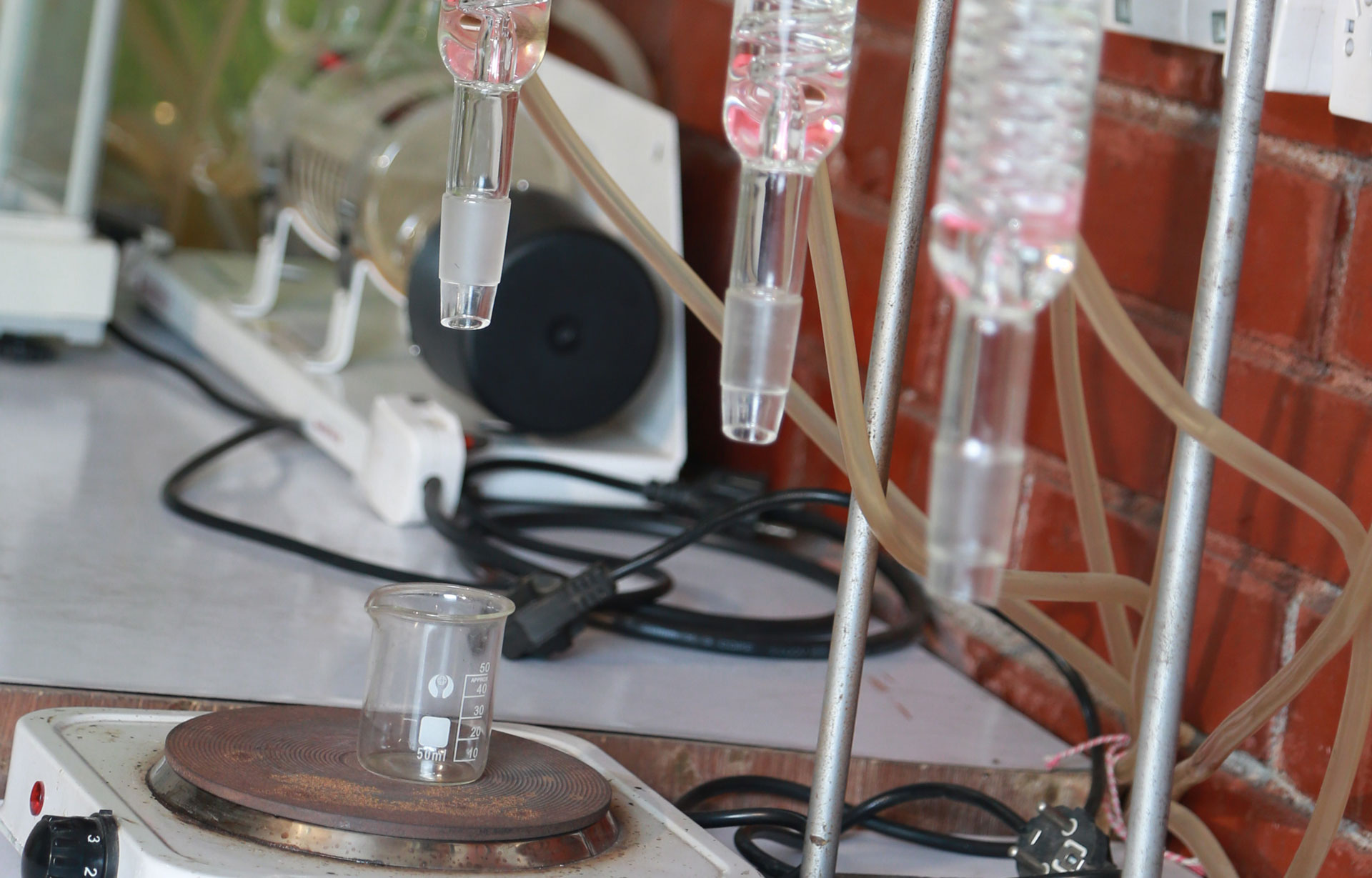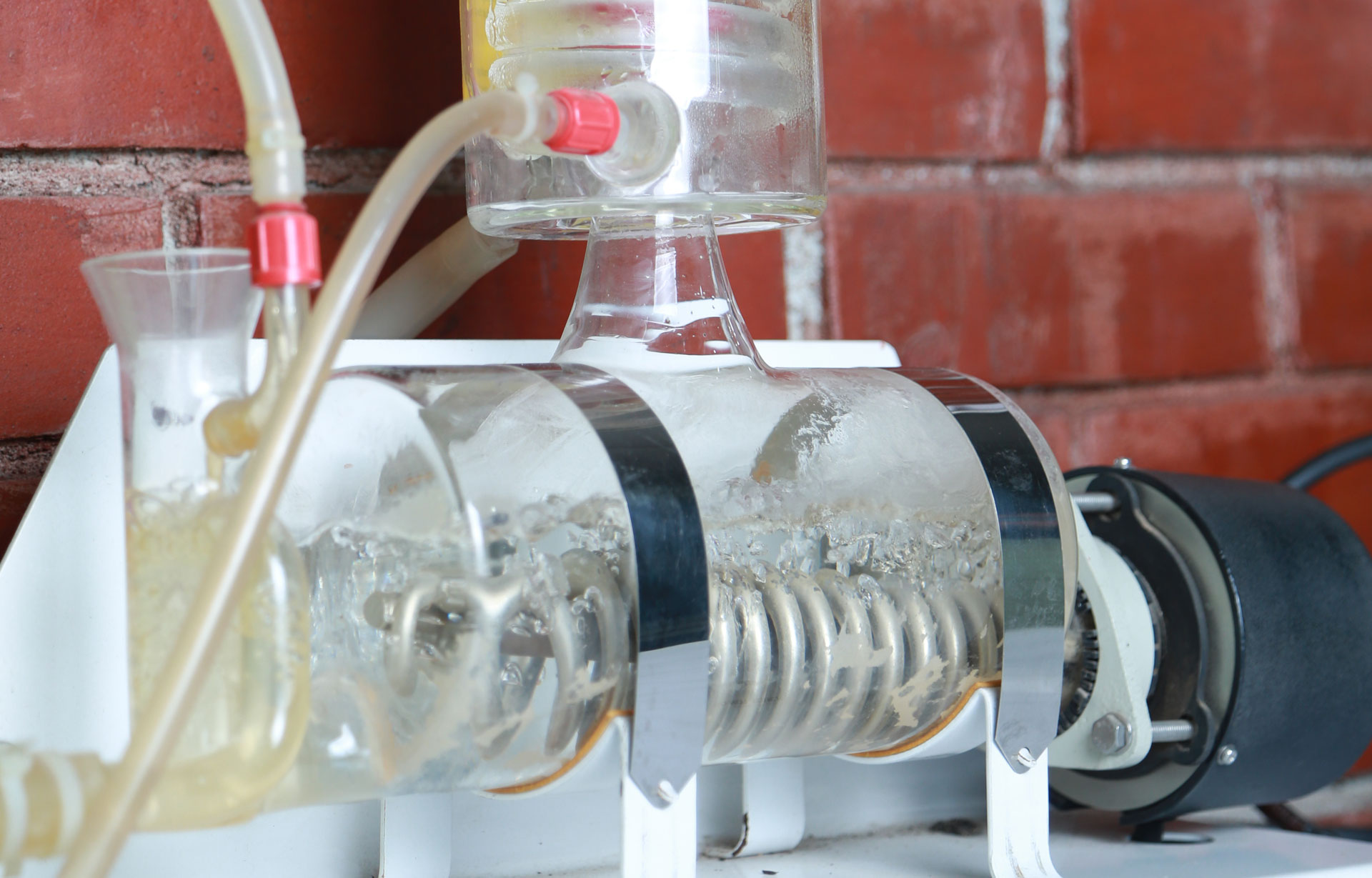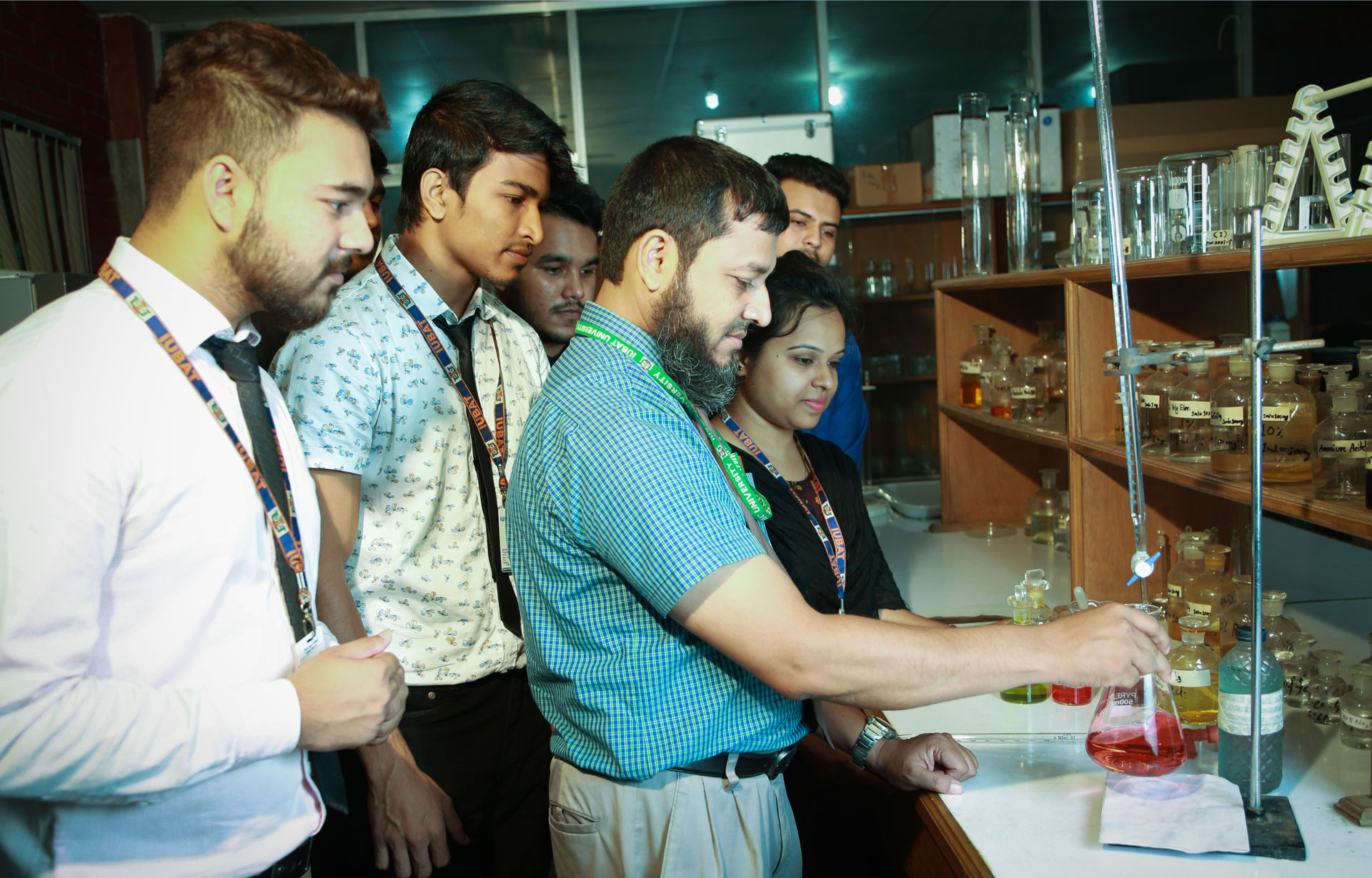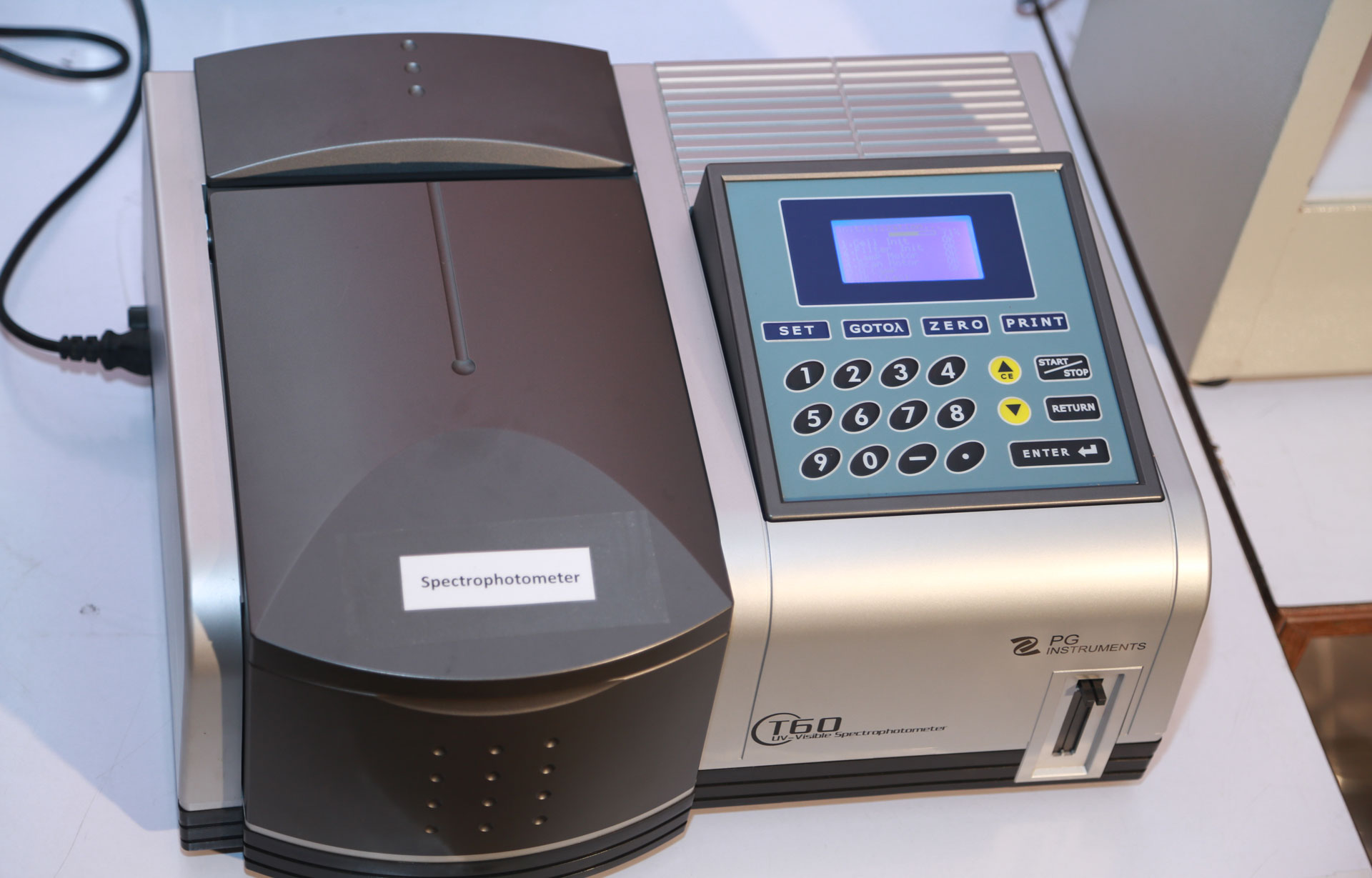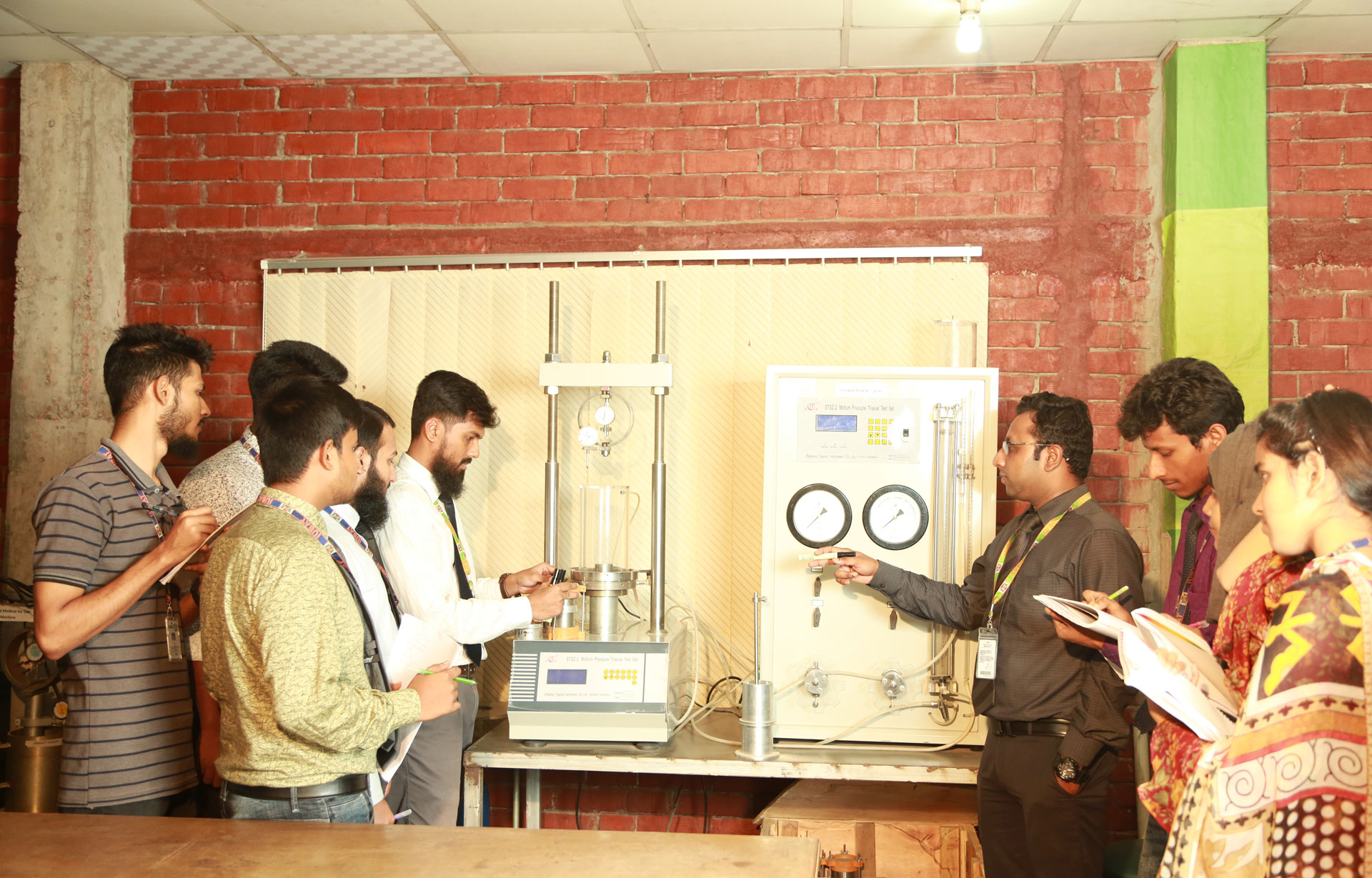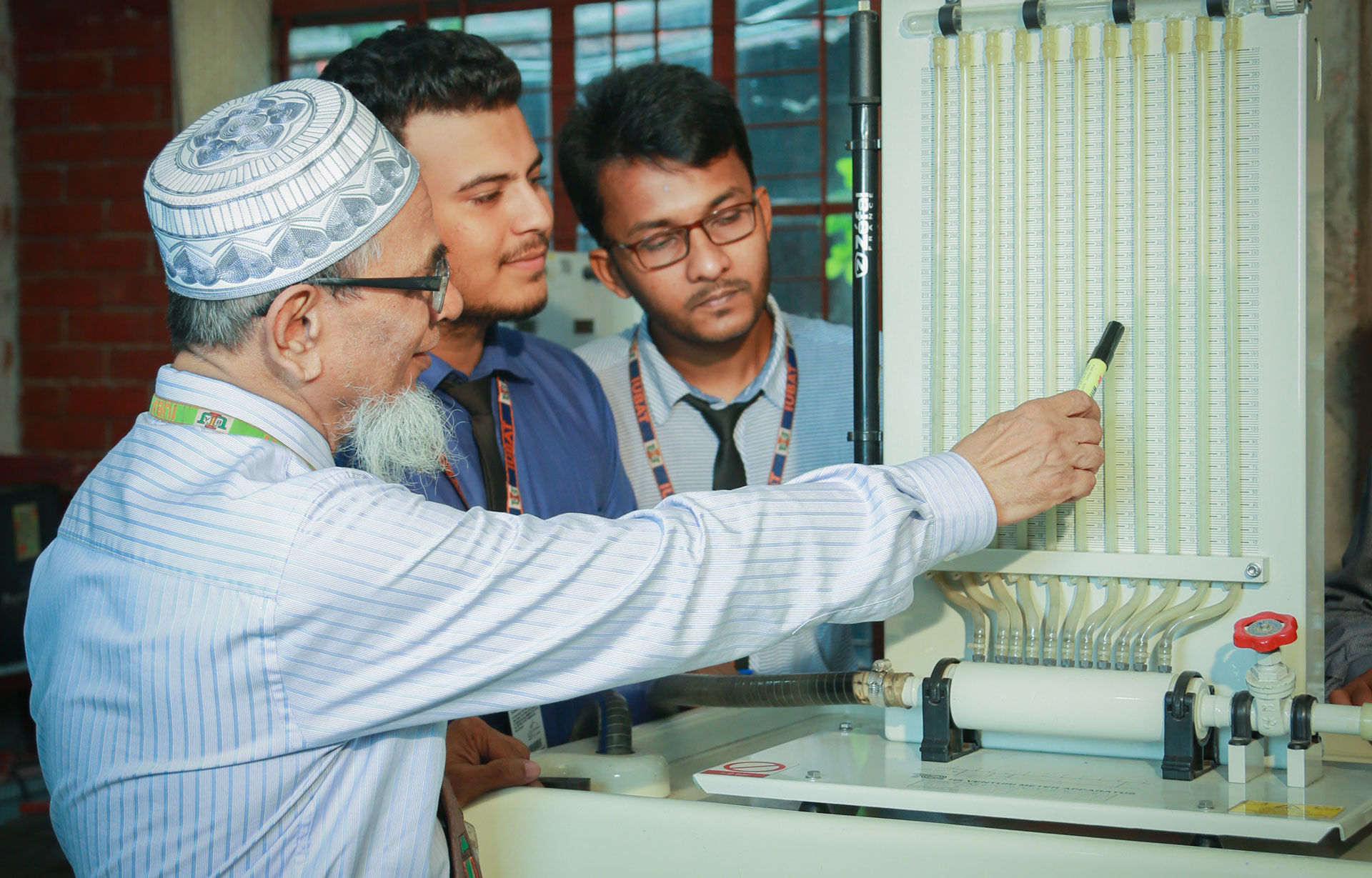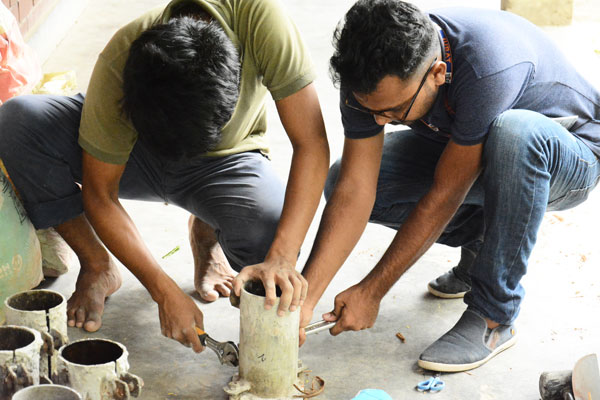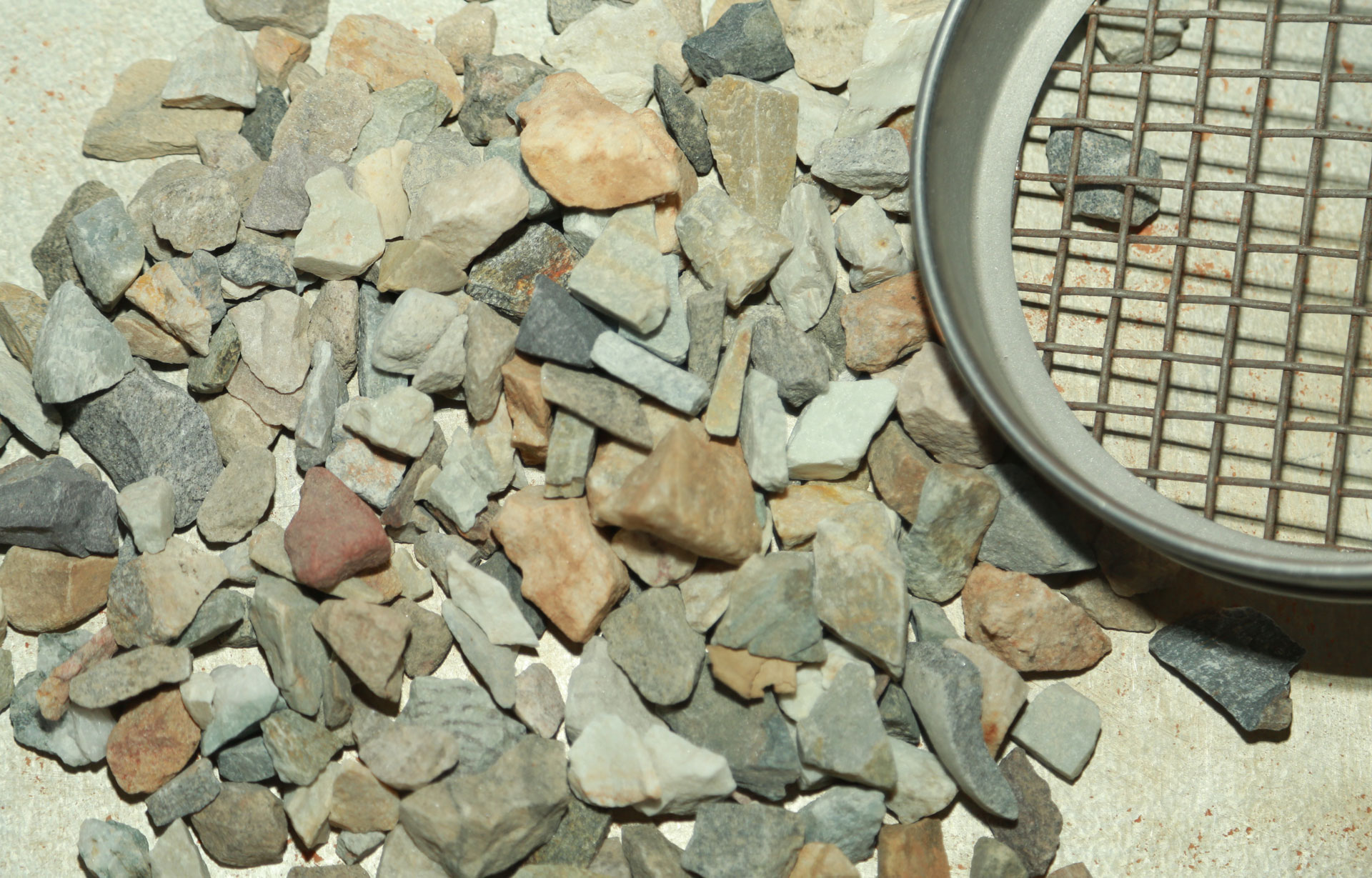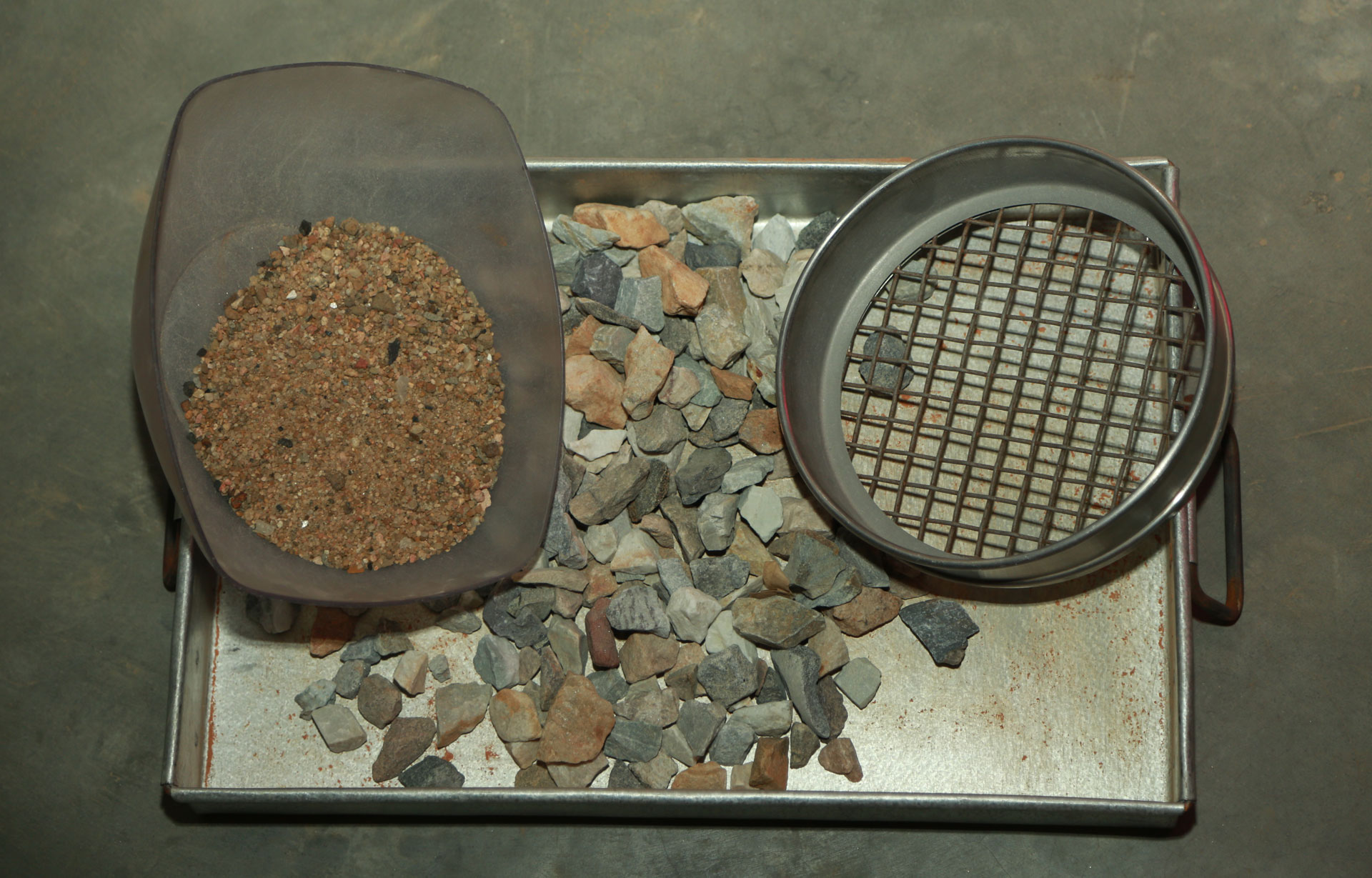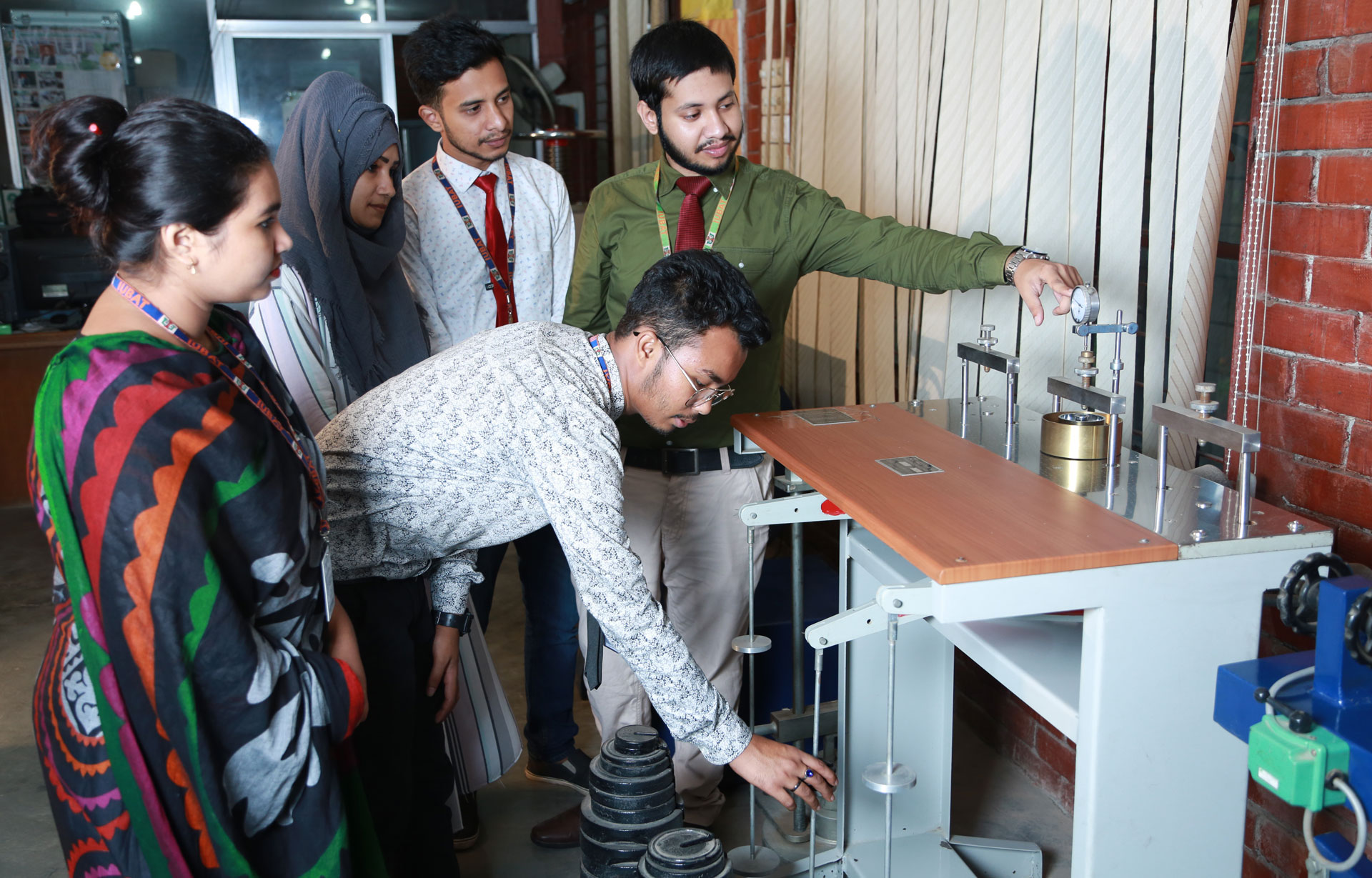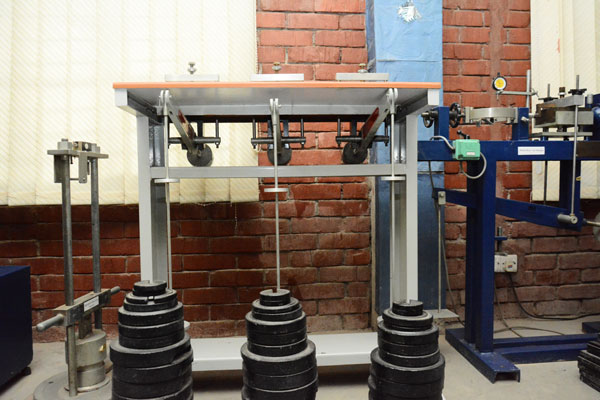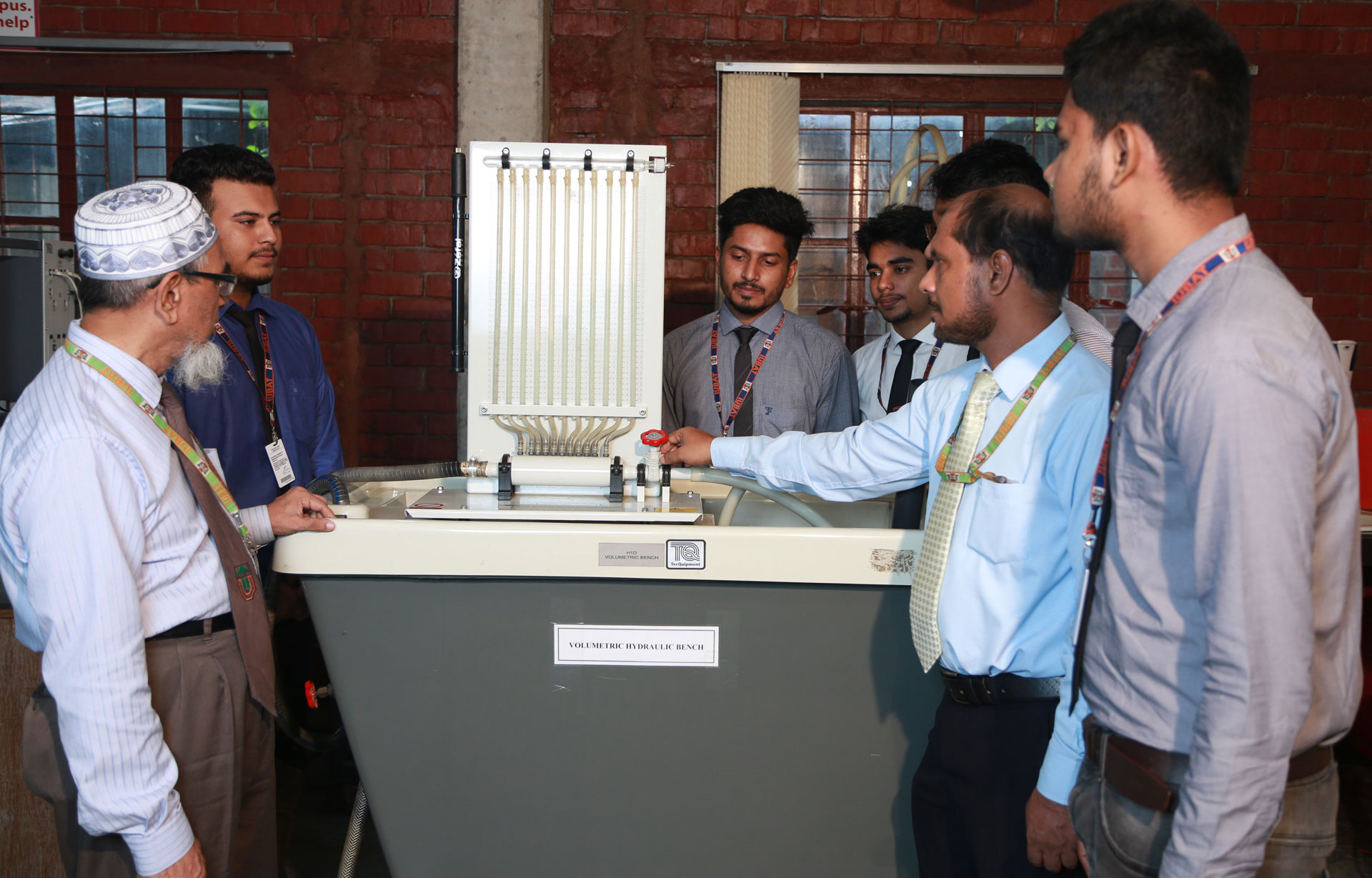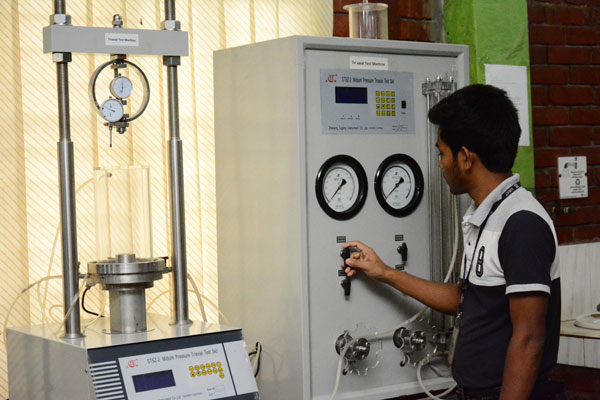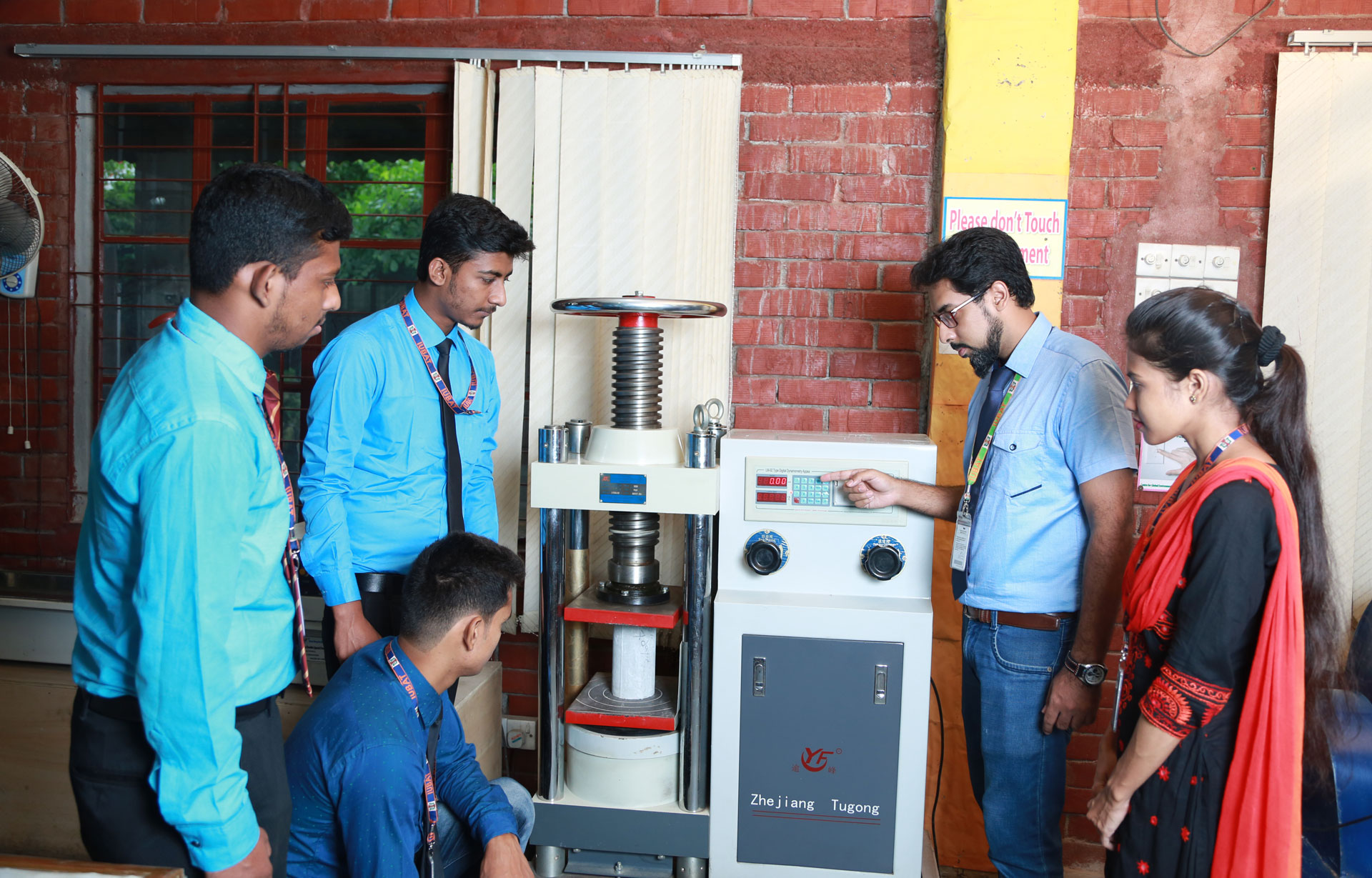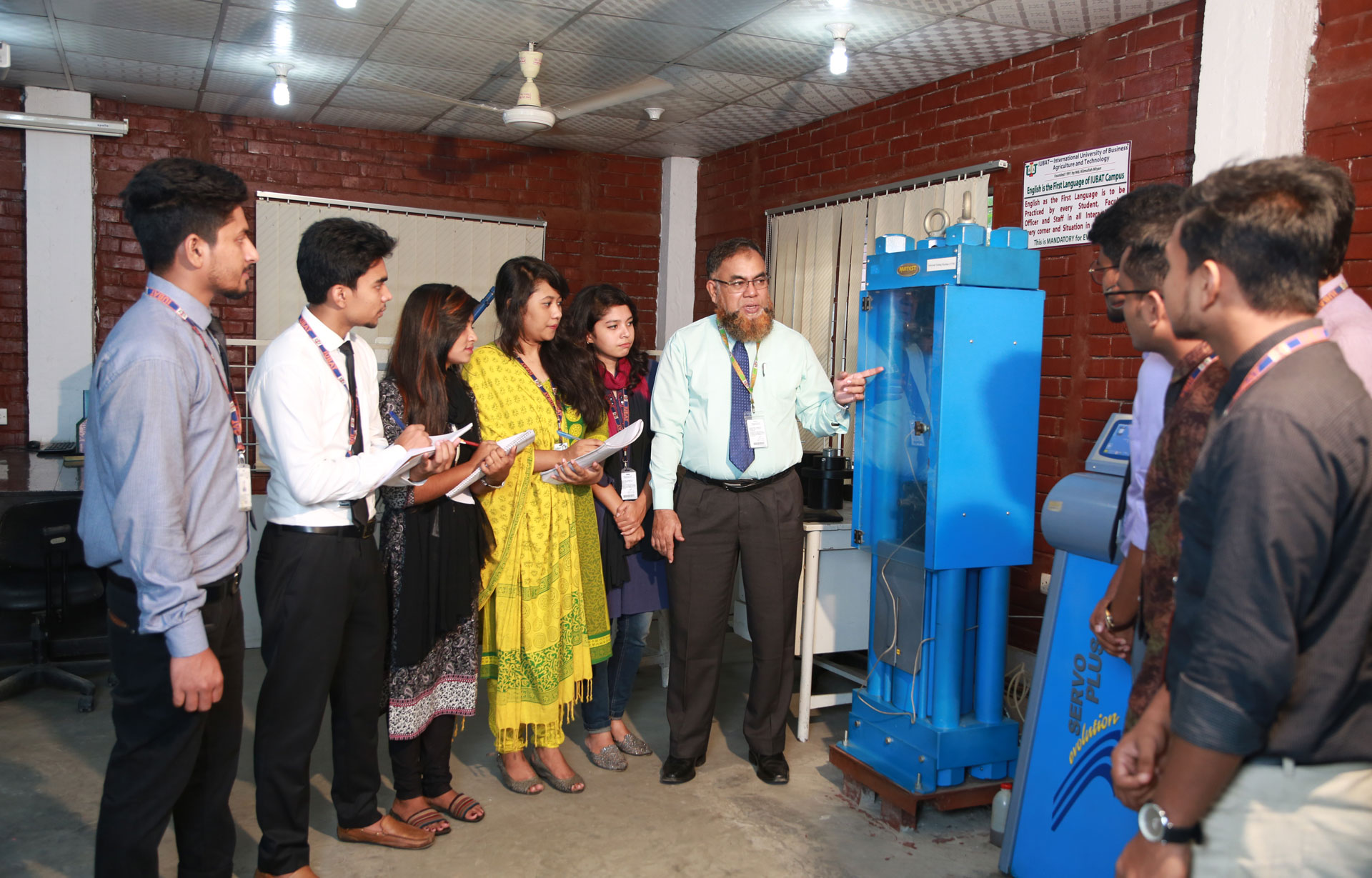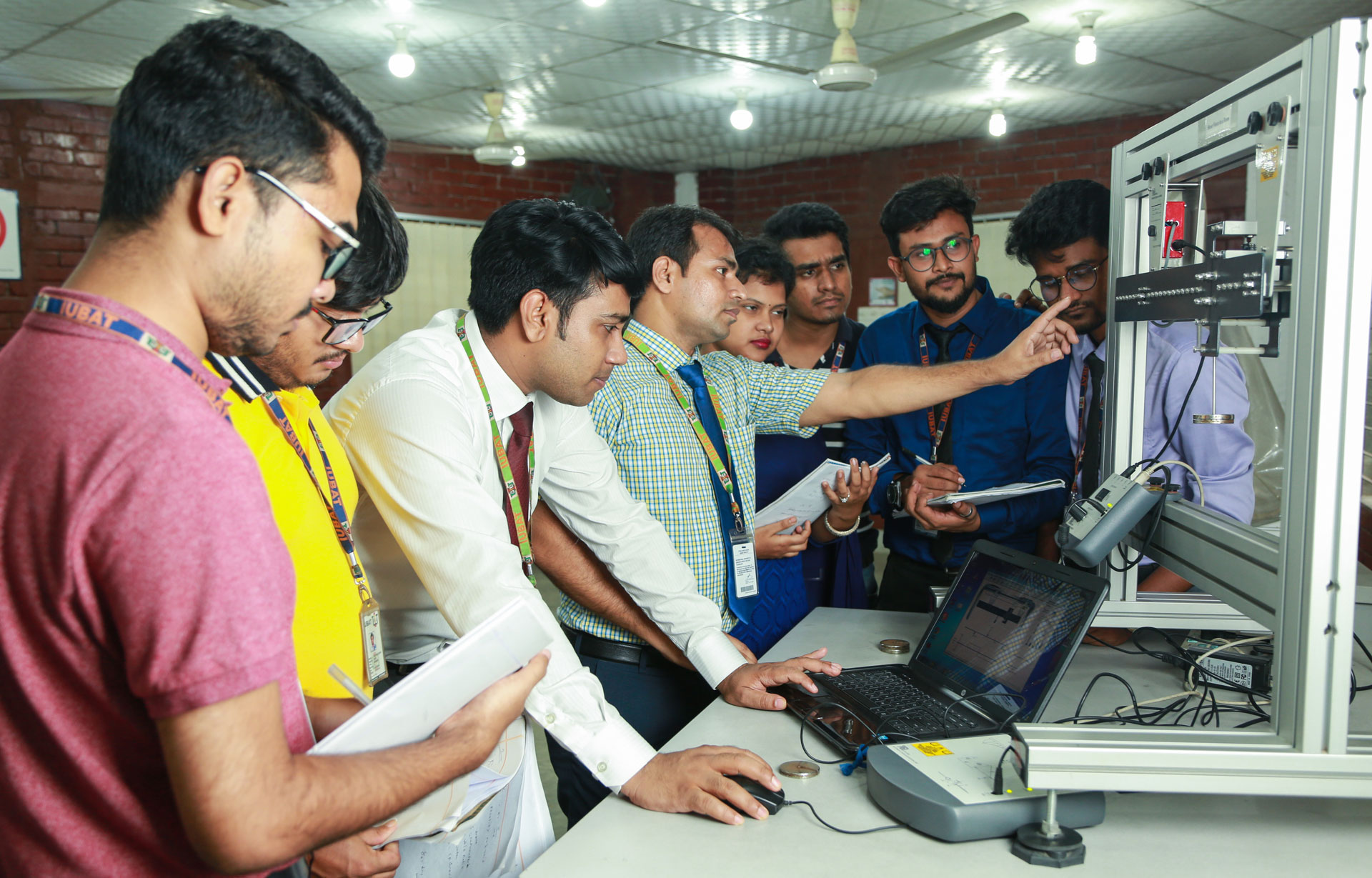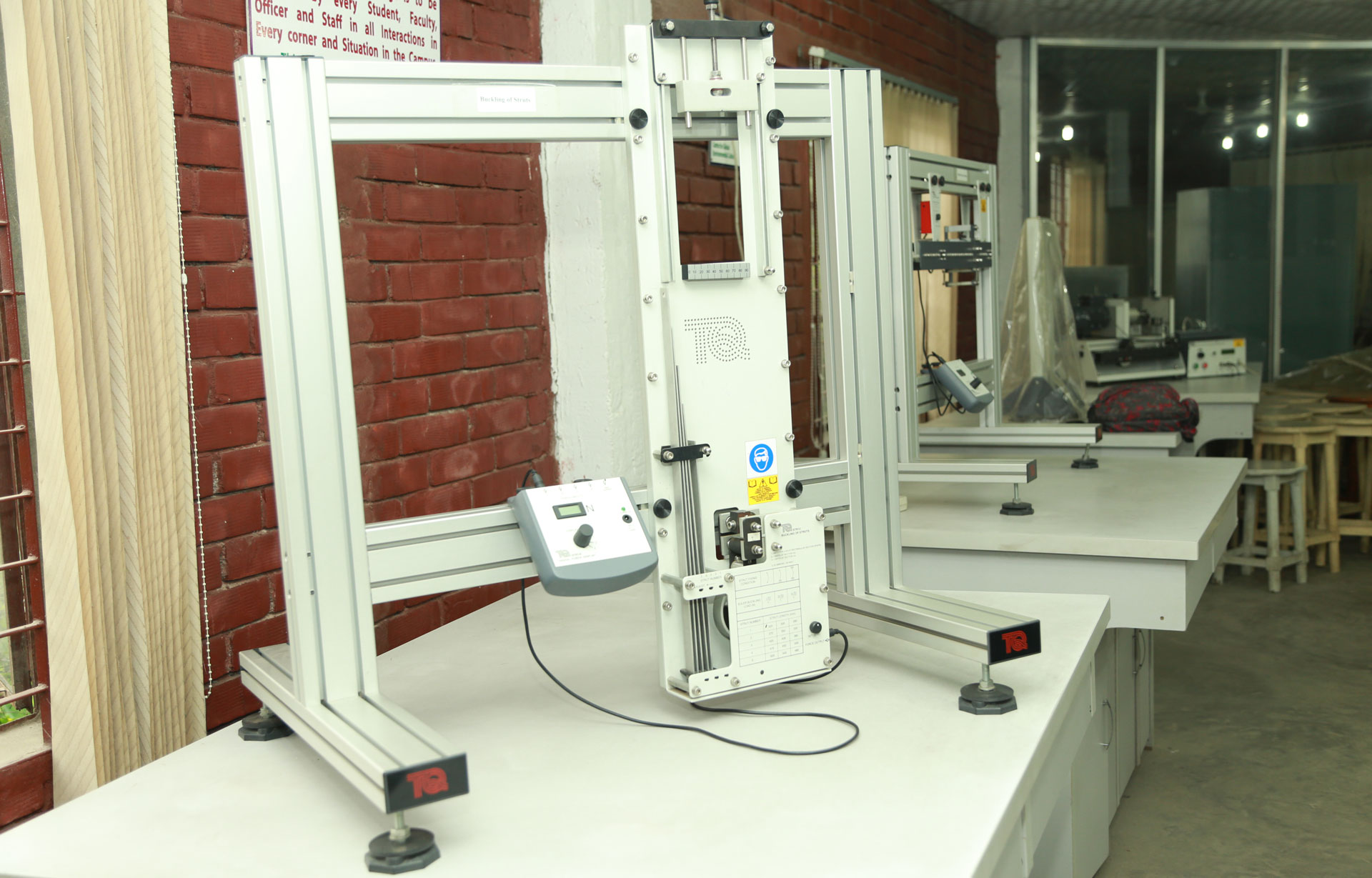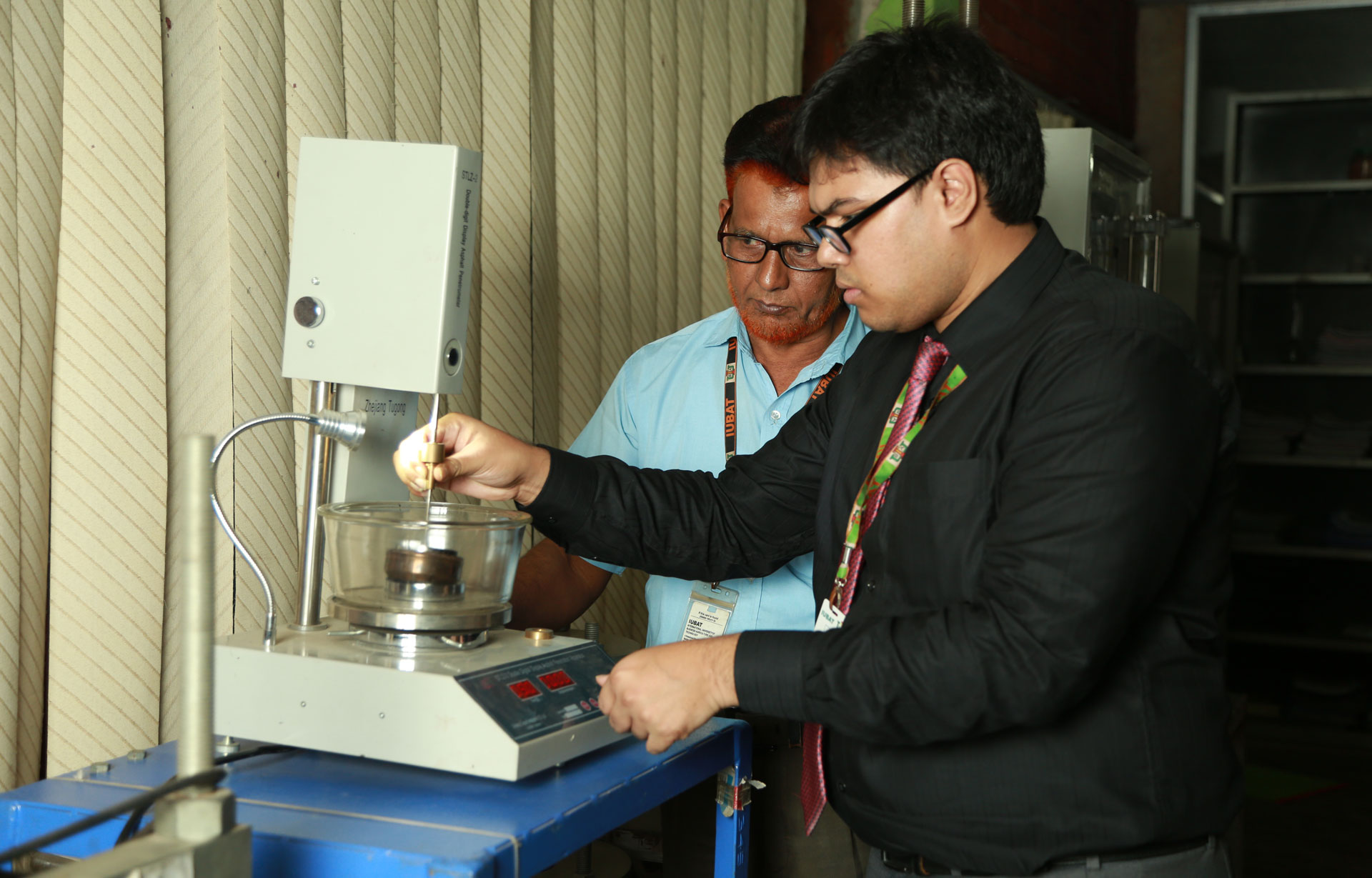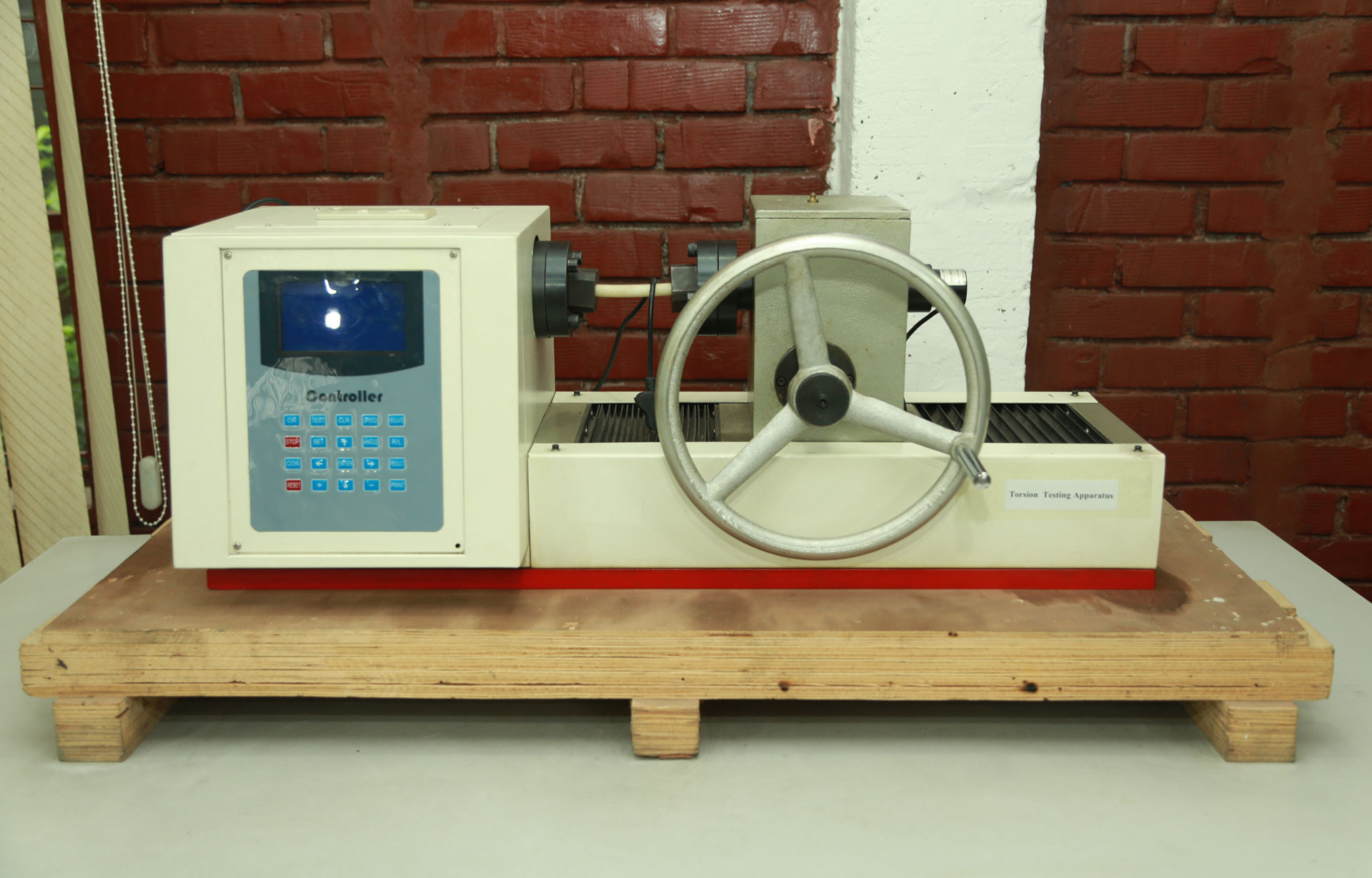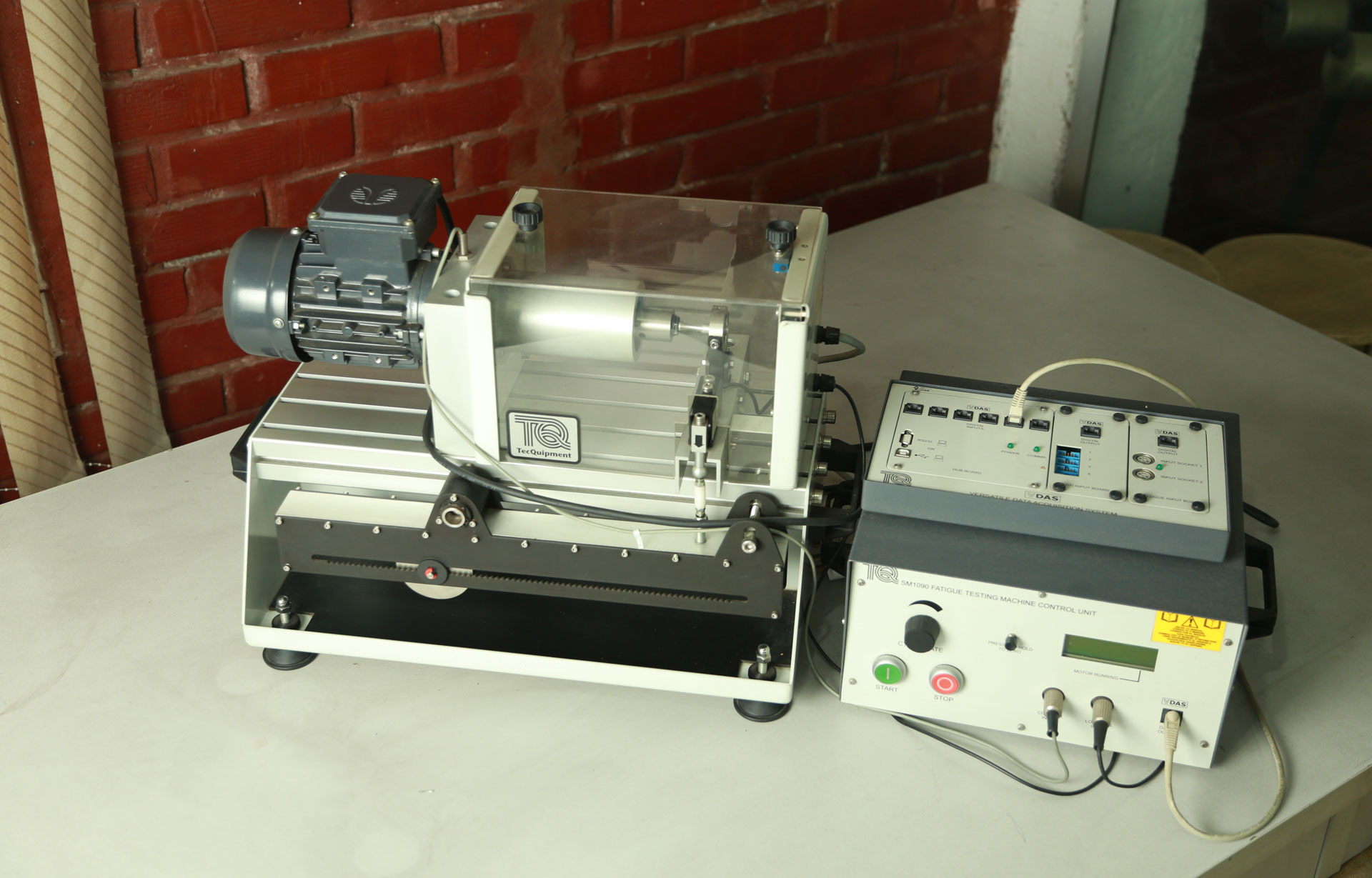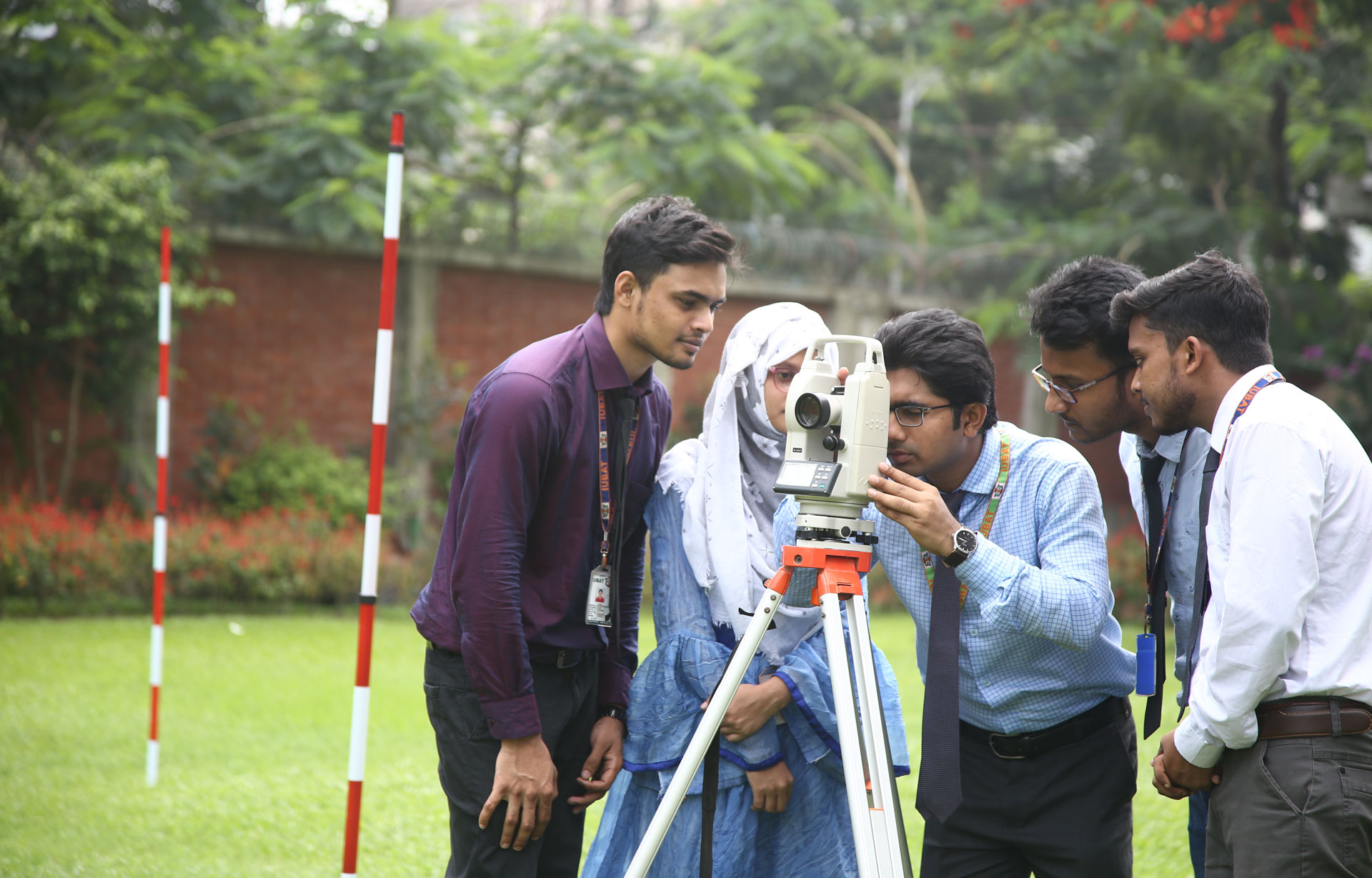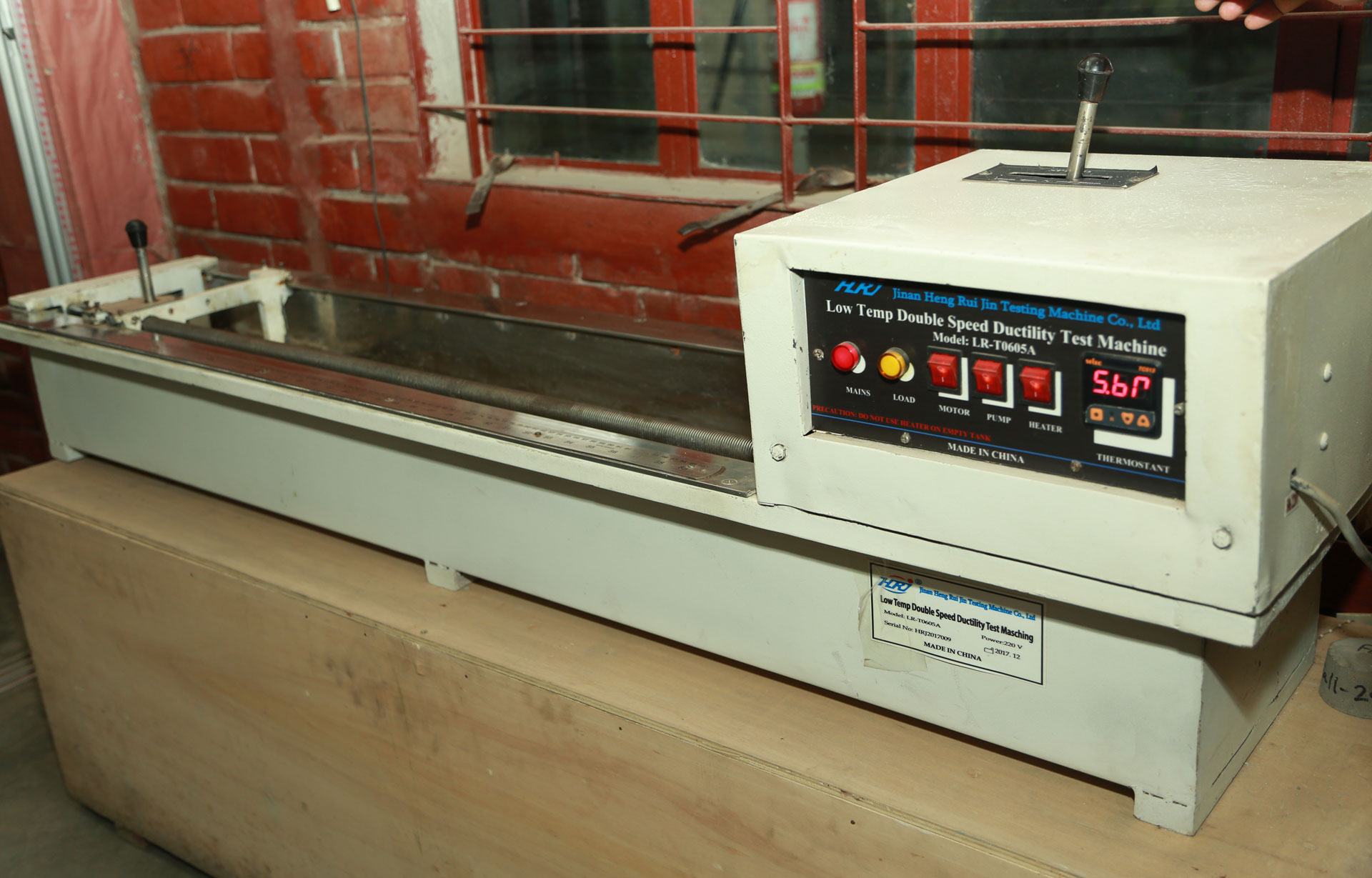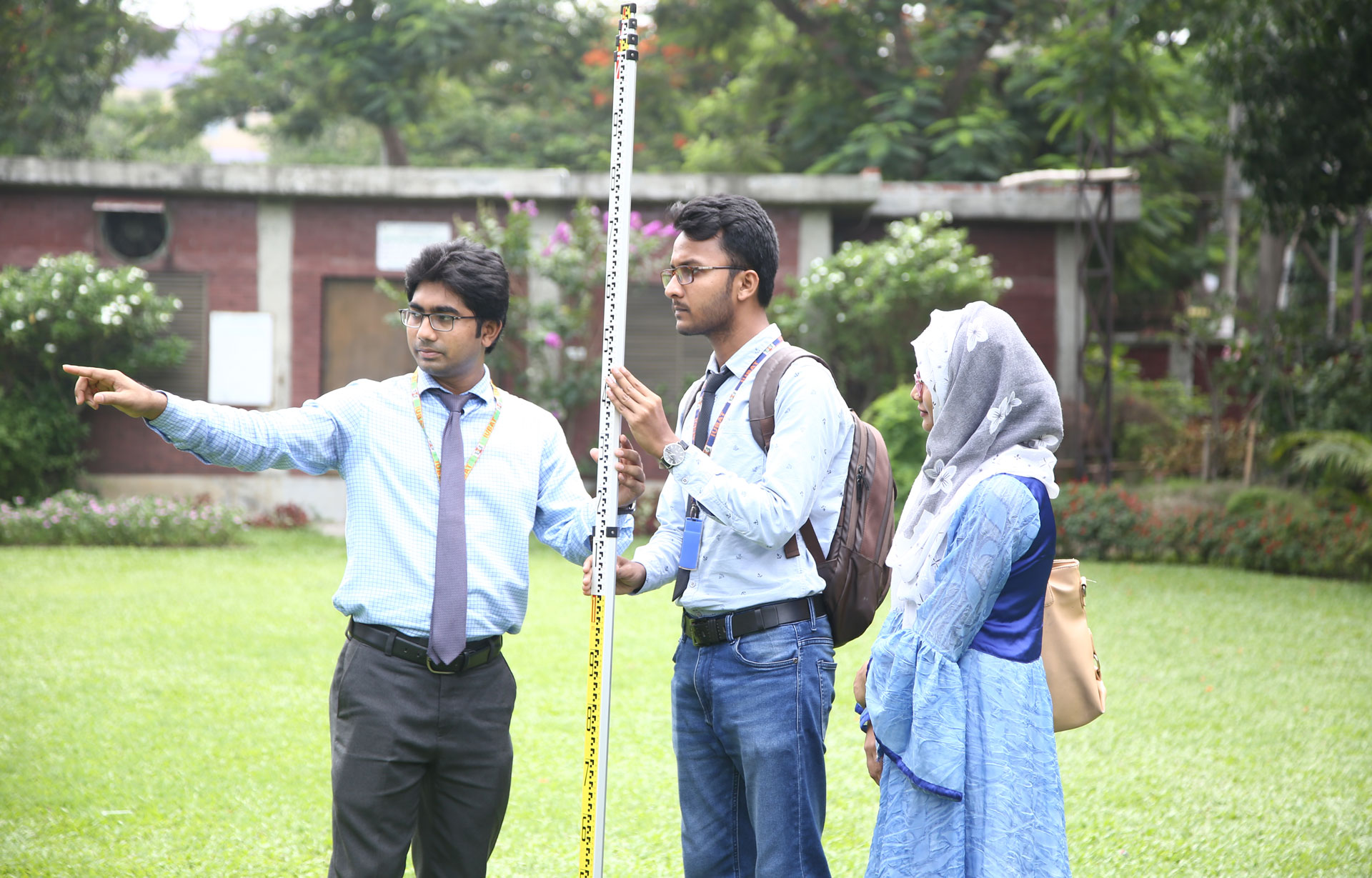The Department of Civil Engineering is continuously improving its laboratory facilities, equipment and other modern engineering tools that civil engineering students and faculty are expected to use in meeting the requirements of the program. Civil Engineering Department has the following full-fledged laboratories to conduct practice and research.
Engineering Material Laboratory:
Test for cement and test for aggregates are covered by using Compression Testing Machine, Vicat’s Apparatus, Los Angles Abrasion Machine, Schmidt Hammer and different size of Sieves.
Surveying Laboratory:
Chain survey, traverse survey, plane tabling, leveling, contouring, measurement of height of an object, area calculation, curve setting, house setting, route survey, distance and evaluation measurement and topography are covered by using leveling instrument, Theodoite, Plane Table, Alidade, Optical Square and Prismatic Compass with necessary accessories.
Geotechnical Engineering:
Field identification test, the Atterberg limit test, field density test, specific gravity test, relative density test, grain size distribution by sieve analysis, hydrometer analysis, permeability test, direct shear test, unconfined compression test and consolidation test by using Hydrometer, Deflocculating Agent, Drying Oven, Sieve Shaker, Desiccators, Direct Shear Machine, Unconfined Compressions machine and Liquid Limit Devices.
Mechanics of Solid Laboratory:
Compression test of concrete, compression test of metallic spring, test of beam bending, biaxial bending test, non-destructive test, impact test of metal specimen, buckling and torsion test, tension test of metal specimens, hardness test of metal specimens, location of centre of gravity, verification of Lames’s theorem, test of flexible chord, simple harmonic motion test, impulse-momentum test by using Universal Testing Machine (UTM), Impact Testing Machine, Fatigue Testing Machine, Helical Spring Testing Machine, Deflection Testing Machine for Column, Shear force Testing Machine, Hardness Tester for Rockwell and Brinell Compression Testing Machine, Torsion Testing Machine and Buckling Testing Machine.
Environmental Engineering Laboratory:
Comparison of color, measurement of pH, turbidity measurement, measurement of carbon-di-oxide, measurement of total solids, measurement of suspended solids, measurement of alkalinity, measurement of hardness, measurement of chlorine concentration, chemical coagulation, residual chlorine, chlorine demand, Turbidity Meter, Electric Oven, Digital Sound Level Meter, Turbidity Meter, TDS Meter, Digital Balance and Filter Sucker, etc.
Transportation Engineering Laboratory:
Determination of roadway capacity, determination of saturated flow at traffic signals, aggregate impact value, aggregate crushing value, aggregate ten percent fine value, flakiness index of aggregate, elongation index of aggregate, angularity number of aggregates, determination of specific gravity of bitumen, determination of penetration of bitumen, determination of solubility of bitumen, Marshall method of mix design, California Bearing Ratio (CBR) test of sub-grade soils by using Impact Testing Macine, California Bearing Ratio (CBR) Apparatus, Marshal Method Apparatus, Standard Penetrometer, Sieve Shaker, Solubility Measuring Accessories and Traffic Counter apparatus.
Hydraulic Engineering Laboratory:
Flow measurement through orifice, flow measurement through mouthpiece, flow measurement through V-notch, flow measurement through venturimeter, determination of velocity coefficient by coordinate method, Test for Fluid Mechanics: Flow measurement through broad-crested weir, flow measurement through sharp-crested weir, flow measurement through a sluice gate, flow measurement through a Parshall flume, demonstration of the hydraulic jump, verification of Bernoulli’s theorem, determination of the center of pressure by using Hydraulic Bench, Flume (Glass Sided), Bernoulli’s theorem verification and Center of Pressure Apparatus.

